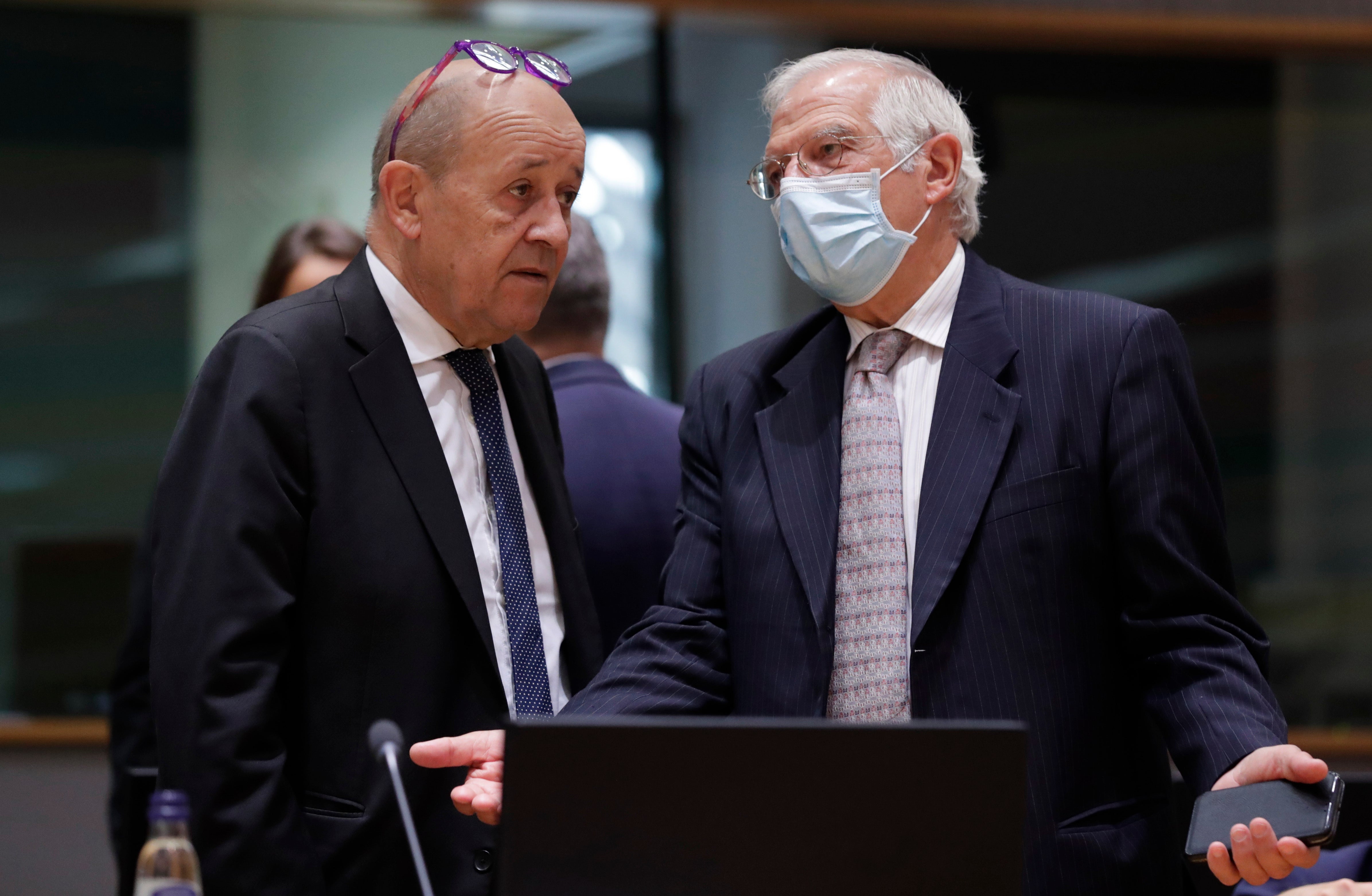EU weighs Lukashenko sanctions, meets his Belarus opponent
European Union foreign ministers are weighing whether to impose sanctions on dozens of Belarus officials, including President Alexander Lukashenko, after holding talks with his exiled main opponent

European Union foreign ministers on Monday were weighing whether to impose sanctions on dozens of Belarus officials, including President Alexander Lukashenko, after holding talks with his exiled main opponent.
The EU has drawn up a list of around 40 people it could hit with asset freezes and travel bans in response to irregularities in the Aug. 9 elections that gave Lukashenko a sixth term in office, and over the crackdown that followed.
The question is whether to include Lukashenko, who has repressed opposition and independent news media during 26 years in power and refuses to talk with the protesters. Some EU countries want to gradually ramp up pressure on him by expanding the sanctions list if he refuses to enter into dialogue with the opposition, rather than hit everyone at once.
Speaking after a number of ministers met Lukashenko’s main opponent, Sviatlana Tsikhanouskaya, over breakfast, German Foreign Minister Heiko Maas said “the violence that Lukashenko is exerting against peaceful demonstrators is completely unacceptable.”
Maas, whose country currently holds the EU’s rotating presidency, said the ministers must “ask ourselves the question of whether Mr. Lukashenko, the one who bears the main responsibility, mustn’t also be sanctioned by the European Union.”
EU foreign policy chief Josep Borrell said the ministers will also weigh what support they can give to the Belarusian people, and also what relations they should have with Minsk given that “we don’t recognize Lukashenko as the legitimate president of Belarus.”
Referring to the breakfast meeting with Tsikhanouskaya, who has been living in exile in Lithuania, Borrell said: “We are really impressed by the courage and perseverance of the Belarusian people, especially Belarusian women who show a real sense of leadership.”
He rejected allegations of European interference in Belarus, saying that “this cannot be regarded as an interference in internal affairs, because democracy and human rights are at the core of the identity of the European Union.”
___
Geir Moulson in Berlin contributed to this report.
Bookmark popover
Removed from bookmarks